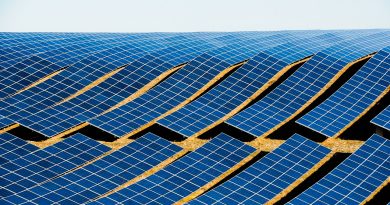Advantages of Solar Rooftop System for Businesses
In the pursuit of sustainable and cost-effective energy solutions, there is an increase in solar rooftop system for businesses. This shift not only aligns with environmental consciousness but also offers a myriad of advantages for businesses. In this blog post, we explore the key benefits that solar rooftop systems bring to businesses of all sizes.
Table of Contents
Cost Savings of Solar Rooftop Systems for Businesses
1. Reduced Energy Bills
One of the primary advantages of solar rooftop system for businesses is the significant reduction in energy bills. By harnessing the power of the sun, businesses can generate their electricity, lowering their reliance on traditional grid power and enjoying long-term cost savings.
2. Financial Incentives
Governments often provide financial incentives such as tax credits and rebates to encourage businesses to adopt solar energy. These incentives can offset the initial investment, making solar rooftop systems a financially attractive option.
Environmental Impact that Business Will Able to Create
1. Carbon Footprint Reduction
Businesses adopting solar rooftop systems contribute to a reduction in their carbon footprint. Solar energy is clean and renewable, producing electricity without emitting harmful pollutants, aligning with corporate sustainability goals.
2. Corporate Social Responsibility (CSR)
Embracing solar energy showcases a commitment to corporate social responsibility. Businesses that actively participate in sustainable practices enhance their brand image, attracting environmentally conscious customers and investors.
Energy Independence
1. Reliability During Power Outages
Solar rooftop systems provide businesses with a degree of energy independence, ensuring a stable power supply even during grid outages. This reliability is crucial for business operations, minimizing disruptions and potential financial losses.
2. Grid Support and Flexibility
Businesses can contribute excess energy back to the grid, providing support during peak demand periods. This not only enhances the flexibility of the energy infrastructure but can also result in additional revenue for businesses through grid support programs.
Increased Property Value
1. Enhanced Asset Value
Commercial properties equipped with solar rooftop systems often experience an increase in asset value. The perceived long-term cost savings and environmental benefits associated with solar installations make such properties more attractive to investors and tenants.
2. Competitive Advantage
Solar-equipped businesses gain a competitive advantage in the market. The growing emphasis on sustainable practices positions them as leaders in their industries, attracting customers who prioritize environmentally responsible businesses.
Low Maintenance Requirements
1. Minimal Operating Costs
Solar rooftop systems have minimal operating costs once installed. Routine maintenance is generally straightforward, and the durability of solar panels ensures a low-risk, low-cost investment over time.
2. Long Lifespan
The longevity of solar panels contributes to the overall cost-effectiveness of the investment. With a typical lifespan of 25 to 30 years, businesses can rely on a consistent and durable source of clean energy.
Technological Advancements
1. Improved Efficiency
Ongoing technological advancements in solar panel technology lead to improved efficiency. Modern solar rooftop systems can generate more power from the same amount of sunlight, enhancing overall energy production.
2. Smart Integration
Businesses can benefit from the smart integration of solar rooftop systems, allowing for real-time monitoring and optimization. These features enhance system performance, providing businesses with greater control and efficiency.
Conclusion
The advantages of solar rooftop systems extend far beyond environmental considerations; they are a strategic and cost-effective solution for businesses. From cost savings and environmental impact to increased property value and technological advancements, the benefits are substantial. As businesses navigate the evolving landscape of sustainability, embracing solar energy emerges as a forward-thinking decision that not only enhances the bottom line but also contributes to a cleaner and more resilient future.

